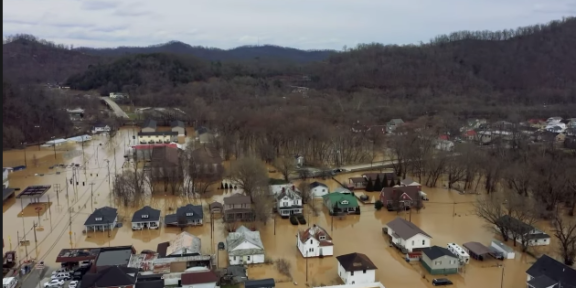The flu, COVID and RSV are rapidly spreading in Kentucky, and health experts say that’s a problem for hospitals, schools and the state’s vulnerable residents.
So far, more than 20 school districts have temporarily halted classes due to RSV. At Norton Children’s Hospital, pediatrician Dr. Robert Blair said respiratory viruses spread primarily by airborne droplets from coughing and sneezing. He explained that premature babies and young children with congenital heart disease, reactive airway disease or asthma are particular susceptible to RSV. They can wind up in the hospital on a ventilator, so he encouraged families to do everything they can to stop the spread of the virus.
“We need to pay attention to people who are sick, and isolate them and support them, and encourage them to mask and take care of themselves, and get medical care,” he said. “And these little babies that are very, very high risk need to not be exposed to people with colds.”
The American Academy of Pediatrics and Children’s Hospital Association have asked President Joe Biden to declare a federal emergency to provide more support to combat the nationwide surge in pediatric hospitalizations driven by RSV and the flu.
Blair said normally, newborns’ immune systems come into contact with RSV, but he pointed out that babies born during pandemic lockdowns didn’t have that exposure.
“And so here they are, two or two-and-a-half or three years old, and they’re catching these virus infections for the very first time,” he said, “and their immune systems have not really been primed well.”
Kelly Taulbee, director of communications and development with Kentucky Voices for Health, added that COVID precautions can help stop the spread of all viruses.
“Emphasis on hand washing, social distancing, covering your cough. Staying home when you’re sick, even if it just seems like mild cold-like symptoms,” she said. “As we’ve seen a lot of those precautions lapsing – those public health policies that were in place during the pandemic, early on – we’ve seen a resurgence of all of these diseases, and RSV is among them.”
There currently is no Food and Drug Administration-approved vaccine for RSV, although clinical trials are ongoing. However, Taulbee said flu shots are easily accessible in every county and are effective at preventing illness, especially among young children, people 65 and older or those at risk for serious complications.










